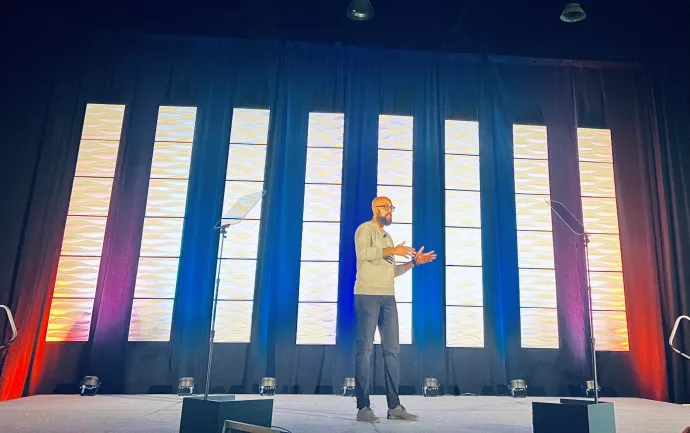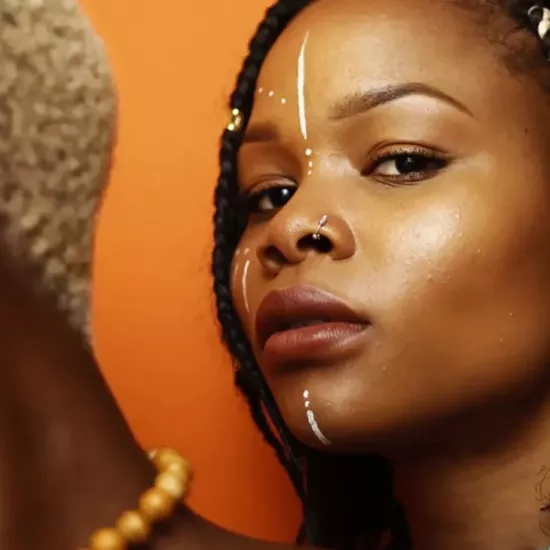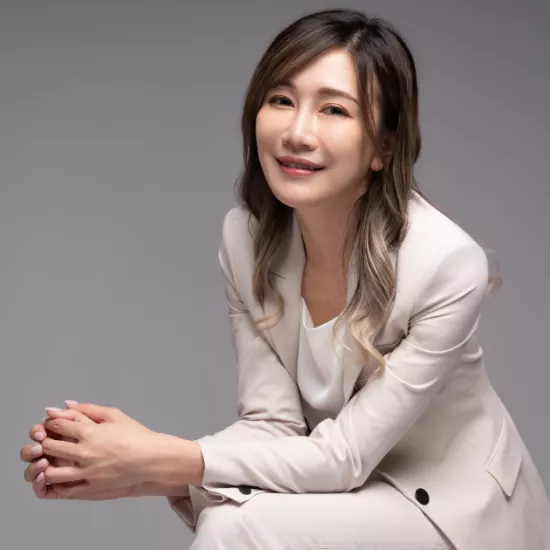The Threatened Future of DEI in the United States: Q&A with UTM Alumnus Yusuf Zakir, Chief Diversity, Equity, and Inclusion Officer at Davis Wright Tremaine, LLP
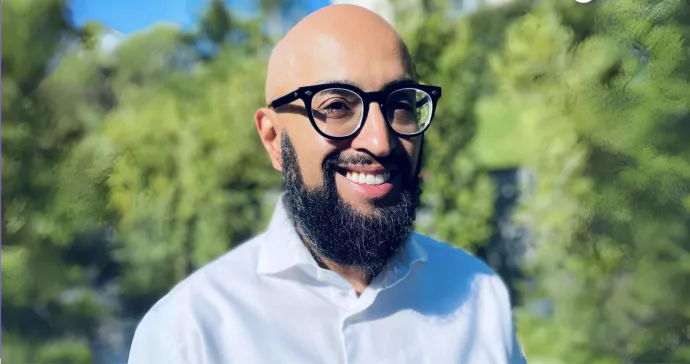
An upbringing as the child of immigrants in Toronto, combined with an education richly spanning the fields of business, philosophy and law, and transporting him from Canada to California, stirred a profound calling. Yusuf Zakir (HBA UTM 2005), a leading voice in Diversity, Equity, and Inclusion (DEI) in the United States, is vocal – and outraged – about the attack on DEI as he sees it unfold in the public arena of U.S. politics. Trickling down into fields and industries where DEI measures were only beginning to make an astounding impact, the baseless war on DEI shows potential to negate any strides that have been made in recent years to provide opportunities for more people – in particular, in fields such as higher education.
With over a decade of experience, Zakir is considered a thought leader in the field of diversity, equity, and inclusion. He frequently authors relevant pieces, and is regularly quoted by major publications. At his firm, he leads efforts to continue building a culture where all talented individuals—including those from traditionally underrepresented communities in the legal profession—can have, and can see, paths to success. Partnering regularly with clients and external organizations, he is a leading force in fostering DEI in the broader legal profession, aiming to cultivate an industry that recognizes intersectionality, empowers authenticity, and engenders belonging.
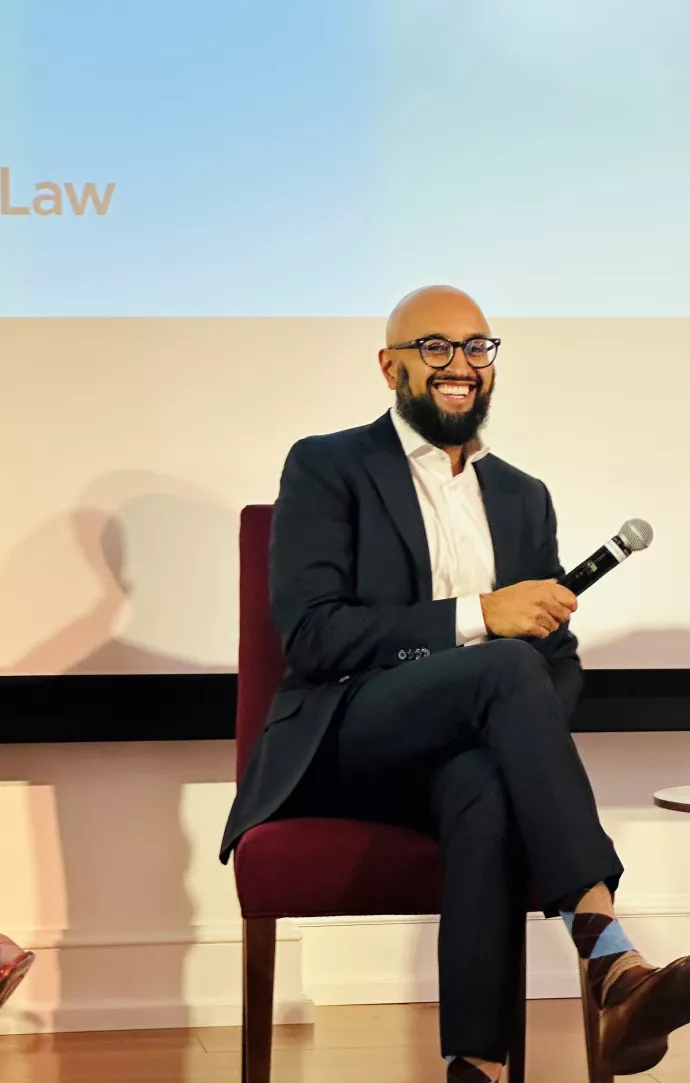
Let’s start at the beginning. Can you tell us a bit about your personal background?
My father grew up in a coastal town in Kenya and my mother on a small island off the coast of Tanzania. They immigrated to Canada in the late 1970s, where I was born. For the most part, I grew up in Toronto. I was a diehard fan of the Toronto Blue Jays and was about 10 years old when the Jays won their back-to-back World Series championships – the coolest thing that could happen to a 10-year-old Blue Jays fan. In my townhouse complex in Thornhill, I would pretend to be Joe Carter, hitting the ninth inning home run to win the championship and yelling “touch ‘em all, Joe!” as I rounded the makeshift bases. I was part of a small Muslim community – which I remain a part of – and attending cultural and religious observances with my community was a large part of my upbringing.
What brought you to UTM and what was your UTM student experience like?
The University of Toronto was always my number one choice. I had heard about it and admired it ever since I was a child. UTM presented an opportunity to be part of the broader University of Toronto family, but in a way that was more accessible and more intimate. At UTM, I felt part of a family and felt like I was able to wrap my arms around the university experience.
You studied Business and Philosophy at UTM – two very distinct choices… or not? What attracted you to each?
I appreciated the opportunity to pursue a double major and the flexibility to make selections that fit my interests. I wanted to tap into both the left and right sides of my brain. With business management, I could learn about the pragmatic and the practical, including marketing, finance, decision making, negotiations, and so forth. With philosophy, I could learn about understanding the way that our world, and the people in it, considered their lives and their existence. While these topics may seem distinct, they are interconnected – our human experience informs how we intersect with the world and vice versa.
What were some of the most interesting lessons or classes that stayed with you? Any professors that come to mind?
First, Professor Jacqueline Brunning (whom we lost in 2016) was a professor in my first year of university. I had enrolled in her logic class. She was quick-witted and no nonsense. Her approach to logic helped me apply a rhythm to life. It was that class which ultimately led me towards law school.
Second, I took a negotiations class with Professor Mark Weber. Professor Weber was energetic and enthusiastic. Besides being an excellent professor, he believed in me and helped me believe in myself. I remained in touch with him for years after graduating.
In several of my classes at UTM and, particularly, in my philosophy classes, I learned about the notion of challenging the status quo. I learned that we do not have to accept the world as it is; rather, we can help make the world what we want it to be. Those teachings have had a direct and significant impact on my career trajectory.
When did you know you wanted to study Law?
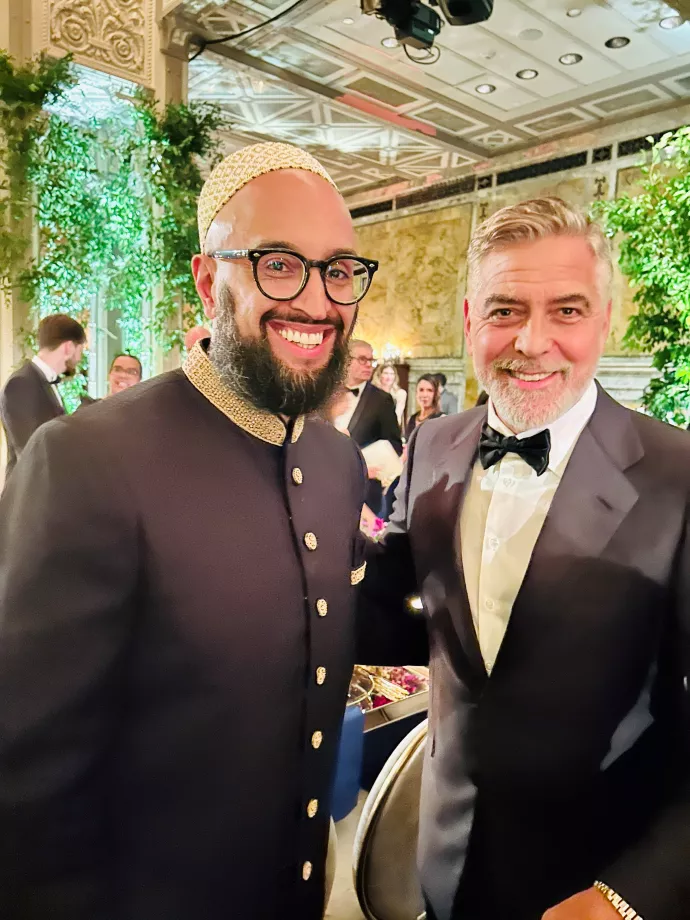
After graduating from UTM, I moved to California. I grew up watching Saved by the Bell and Full House and was enamored with the idea of California – beaches, surfer guys and gals, convertibles, Hollywood. It helped that I married a girl from California, too. I initially moved to San Diego, working a number of random jobs, including simultaneously serving as a nutrition consultant and working as a marketing assistant in a cookie company. Two sides of the same coin, maybe!
I had always been drawn to the political and legal institutions of America. As a Canadian, American news, culture, and information can be overpowering. I watched America dominate the culture of the world and American politics dominate our own national politics and culture. Despite how overwhelming it could be, I loved it. And, I wanted to be a part of a system that had this sort of tremendous cultural impact.
Was it during graduate school that you developed an interest in DEI-related topics?
I attended law school without really knowing what type of law I wanted to practice, which is not uncommon for people pursuing a career in the law. I was fortunate to get good grades and was able to land a position at Latham & Watkins, a global law firm near the top of The American Lawyer rankings. It was there, with that first legal job, that my interest in pursuing a career in DEI began. I am part of several traditionally underrepresented minority groups and so, the concept of ‘diversity’ has been part of my life from the very beginning. I did not know, however, how to put a label on it and certainly had no idea that I could pursue a profession dedicated to it. After I started practicing law, I began dedicating hundreds of hours each year focused on issues related to DEI. Eventually, I told my trusted advisors at Latham that I wanted to pursue a career in the DEI space – and they helped me find a way to do it.
Could you please tell us about the work you have done and currently do in the field of DEI?
I have spent nearly ten years in DEI. Initially, I was involved predominantly in efforts focused on diversity recruiting. At the time, much of DEI was focused on the ‘recruiting’ element, seeking to open doors and create opportunities for people from traditionally underrepresented groups. Over time, the work evolved and so did I. Corporations and organizations began to adopt and embrace the concepts of inclusion and equity and the work began to focus on ensuring access to development, advancement, and success.
Since 2020, I have served as the Chief Diversity, Equity, and Inclusion Officer at Davis Wright Tremaine, LLP, a national law firm with offices across the U.S. Here, I helped design and execute a new DEI strategy at the firm based on four pillars: (1) Community – fostering an inclusive culture; (2) Growth – ensuring equitable access to opportunities; (3) Education – elevating individual and collective knowledge; and (4) Engagement – collaborating with external stakeholders, including clients, around our shared commitment.
I spend any given amount of time each day in all four of those pillars, helping to advance our work across the institution and the broader legal profession.
I’m not sure how connected you still are to the DEI space in Canada but, if you have a view on this, how would you say DEI work is developing / progressing differently in the United States versus in Canada?
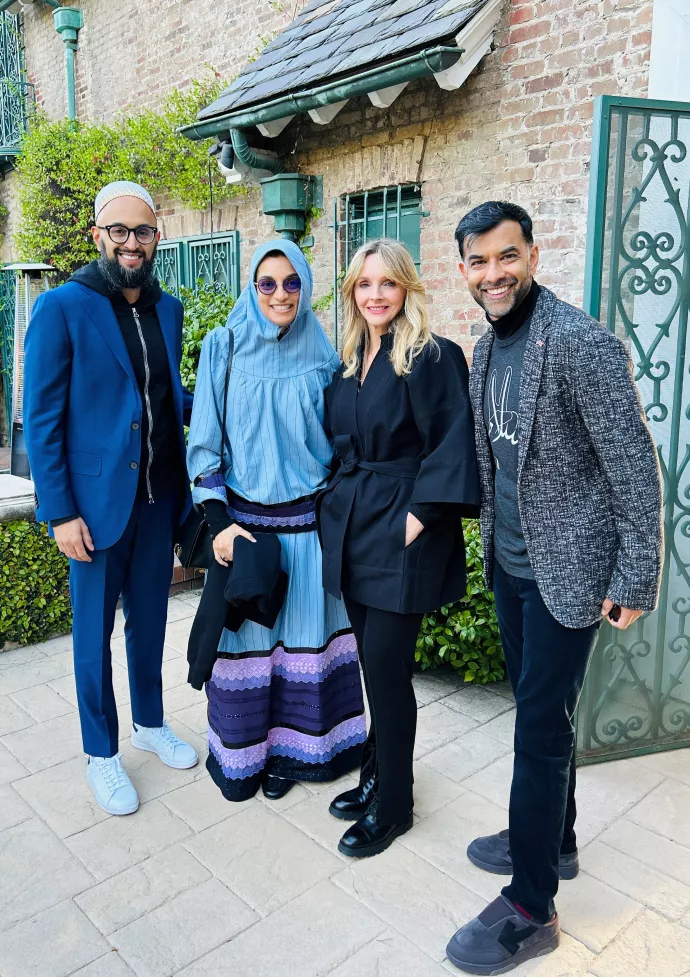
In many ways, the DEI challenges and opportunities in the U.S. and Canada are similar. However, there are a couple key differences that I have observed. First, in the U.S., there is a deeper acknowledgment of the realities and consequences of racism. In Canada, I have found that we like to believe that we are more progressive on race relations; I think, however, that we can sometimes be in denial about the pervasive nature of racism in Canada, as well – racism that many of us have personally experienced at home. Second, being that Canada is generally considered a more progressive nation than the U.S., we can sometimes fail to confront some significant challenges about equity and inclusion that still plague the country and its institutions. I would implore us, as Canadians, to confront and address our own systemic challenges. We have the ability, the patience, and the thoughtfulness to do so.
In a recent commentary you wrote for The American Lawyer, you stated that “DEI has become a political football used to inflame and anger people in order to score political points for a broader extreme right-wing agenda.” Can you tell us about the political and/or cultural factors that have led to a recent attack on DEI in the U.S.?
One of the primary drivers is the movement of U.S. politics to the extremes, on both, the right and the left – a movement that is occurring globally as well. Advocates on the extreme right in the U.S., specifically, are looking for opportunities to secure and activate their base. A key way to do this is to generate fear. These extreme-right wing advocates have used DEI as a fearmongering tactic by arguing, falsely, that DEI is being used to steal opportunities from members of their base. Part of my work involves helping people understand that this is a false narrative. DEI is not a zero sum game. Rather, DEI is additive – it is about expanding opportunities and leveling the playing field.
How do you foresee this progressing?
With the upcoming election in the U.S., the rhetoric will become increasingly inflammatory. No matter the result of the election, DEI will continue to be used as a scapegoat for society’s ills. There are conservative activists who have made it their priority to destroy and dismantle DEI efforts. Because of this, those of us who are working to advance DEI must continue to remain proactive in reclaiming our narrative.
Following various court decisions, universities, in particular, are under attack in the U.S. for their equity- and diversity-based recruiting and selection practices. Would you like to comment on that?
The fight against diversity has definitely been fought at the university campus level, as well. Most recently, the U.S. Supreme Court found that universities could not consider race as a factor in the admissions process. This decision was based, in part, on the notion of ‘color blindness’ – the idea that racism would not occur if we choose not to see race. Though this theory has been disproven – and shown to actually perpetuate discriminatory behavior – it is being used to advance an agenda against DEI.
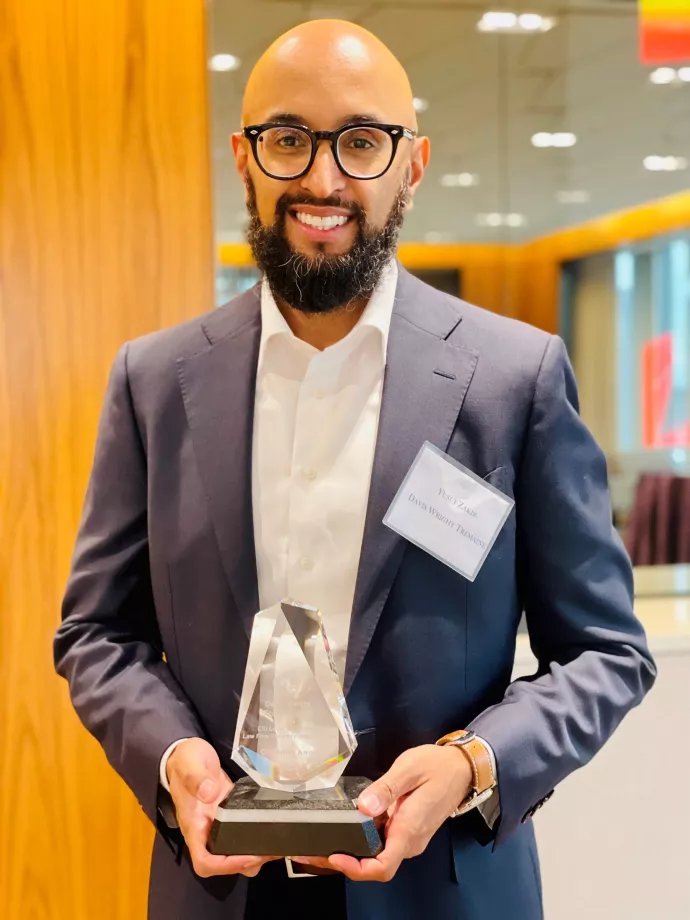
To what extent do you think these developments in Higher Education have the power and momentum to influence universities’ recruiting culture in Canada, too?
There is currently and unfortunately strong momentum with these developments in higher education in the U.S. and I do think that this momentum will influence academic institutions in Canada, as well.
What worries you the most about the anti-DEI movement in the U.S.?
Following the murder of George Floyd, we saw a significant effort to address racism in the U.S. Corporations and organizations made commitments and sought to tackle these challenges. As time has passed and as anti-DEI efforts have grown – in part, in response to the movement following George Floyd — efforts to build a more just, equitable, and inclusive society have slowed. As a brown, Muslim man in the U.S., I am worried about a society that becomes less tolerant and less inclusive. I am worried about seeing an increase in hatred and bigotry. I am worried about the narrowing of paths for many who are already marginalized.
What motivates you in your day-to-day work and to be a public voice for the honing of DEI principles?
I truly believe in building a more just, equitable, and inclusive society, not only for myself, but for my children. I believe that everyone should have equitable opportunities to grow, to advance, to succeed, to love, to live. And I believe that this is possible. I will continue to do my own small part to help in this journey.
